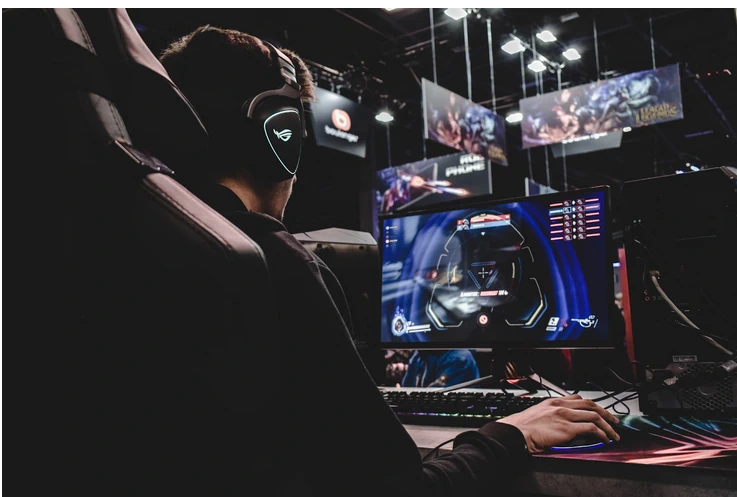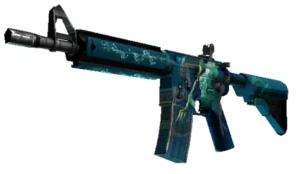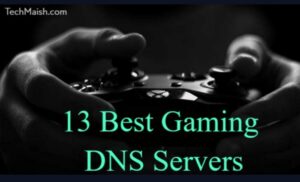How Blockchain is Changing The Gaming Industry
Blockchain technology came about with the introduction of cryptocurrencies, like Bitcoin. It’s a relatively new tech that is changing how we do a variety of things, including how we play games. Blockchain is the backbone of cryptocurrencies, and as cryptocurrency becomes more widely accepted all around the world, more people are interested in learning about how it works. Many are taking their first steps through gaming.
Crypto gaming provides a relatively safe and user-friendly environment for new users to learn about digital currencies.
Decentralization – Shaping a New Gaming Landscape
At its core, blockchain brings decentralization to gaming, removing the need for a single authority. In traditional gaming, developers and platform owners held all the control. Now, with blockchain, gaming platforms become decentralized, sharing power more evenly among players. This is a big change for the gaming industry and players are excited about it. These changes span all sorts of crypto gaming genres including NFT games, casino games, play-to-earn games, and Metaverse games. Sergio Zammit says that many players are opting for crypto games because they provide an extra layer of entertainment by allowing players to stake their rewards and tokens while playing.
Gaming and Cryptocurrency Integration – Buying and Earning in a New Currency

The integration of cryptocurrency into gaming is a direct result of blockchain’s influence. Cryptocurrencies like Bitcoin and Ethereum are becoming accepted forms of payment within the gaming industry. Gamers can now buy in-game items, and upgrades, bet online with crypto, or even purchase entire games using cryptocurrencies, offering a secure and global payment option.
Crypto gaming encompasses play-to-earn models, NFT games, Metaverse games, and crypto casino games. Each style of game offers players unique benefits and various ways to use and interact with digital coins.
Some blockchain-based games even have their own cryptocurrencies. Players earn these tokens through gameplay, using them to unlock premium features, buy rare items, or participate in decentralized autonomous organizations (DAOs) that influence the game’s development.
Smart Contracts – Gaming Agreements Made Easy
Blockchain uses smart contracts, which are like self-executing agreements written in code. These contracts automate various aspects of gaming transactions, making things fair and transparent. For example, smart contracts can manage reward distribution, regulate in-game economies, and complete transactions without any need for a middleman.
In blockchain-based games, smart contracts enable players to earn cryptocurrency rewards for their in-game achievements. This not only makes gaming more engaging but also introduces new opportunities for earning within the gaming world.
One example of this is Axie Infinity. Axie Infinity is a blockchain-based game leveraging smart contracts on the Ethereum blockchain to create a play-to-earn ecosystem. In this game, players collect, breed, and battle fantasy creatures known as Axies. The ownership and lineage of these Axies are transparently recorded on the Ethereum blockchain through smart contracts, providing players with true ownership of their digital assets. Smart contracts play a pivotal role in breeding and battle mechanics, determining rewards based on performance and strategies employed during battles.
The game’s native cryptocurrency, Axie Infinity Shards (AXS), can be earned by participating in battles, completing quests, and achieving in-game milestones. Players have various earning opportunities, including selling and breeding Axies on a player-driven marketplace, earning resources through battles, and participating in community governance using AXS tokens. Axie Infinity is a great example of a blockchain game that integrates smart contracts to create a transparent, secure, and player-centric play-to-earn model.
Ownership and Digital Assets – Your Game, Your Rules
Blockchain revolutionizes how gamers own and trade in-game assets. In the past, players didn’t truly own their virtual items; everything was stored on central servers controlled by game developers. With blockchain, ownership is logged on an unchangeable ledger, giving players actual ownership of their digital belongings.
This shift is especially visible in blockchain-based games that use non-fungible tokens (NFTs). These unique digital assets are tied to specific games, allowing players to buy, sell, and trade them across different games or platforms.
Players can now buy, sell, and trade assets like skins, weapons, and other in-game items that they’ve either created or purchased from someone else. This creates a whole new way of owning digital items.
Tokenization of In-Game Economies – Playing with Your Own Money
Blockchain introduces the idea of tokenization to in-game economies. Gaming tokens, built on blockchain platforms, serve as native currencies within specific games. These tokens can be earned while playing, traded with other players, or even converted into other cryptocurrencies. This makes in-game economies more vibrant and player-centered. Players can take advantage of the liquidity of gaming tokens, using them across different games or platforms.
Decentralized Autonomous Organizations (DAOs) – Gamers Taking Charge
Blockchain allows the creation of decentralized autonomous organizations (DAOs) within the gaming community. DAOs are organizations governed by smart contracts and consensus mechanisms, giving community members a say in decision-making.
In gaming, DAOs empower players to influence the development and direction of their favorite games. Token holders can vote on proposed changes, new features, or in-game events, creating a more democratic and community-driven approach to game development.
Challenges and Considerations – Navigating the Path Ahead
While blockchain brings many benefits to the gaming industry, it’s important to recognize the challenges that it brings as well. One significant concern is the environmental impact of blockchain networks. For example, Bitcoin’s network produces nearly as much CO2 emissions as the country of Greece. That’s a lot! Knowing about the environmental impact of blockchain has led to the exploration of more eco-friendly alternatives.
Additionally, blockchain technology is still evolving, and widespread adoption in the gaming industry requires overcoming technical barriers, ensuring scalability, and addressing user experience challenges. Education and awareness about blockchain gaming are also crucial for widespread acceptance.
Conclusion
In conclusion, blockchain is ushering in a new era in the gaming industry. From ownership of in-game assets to the automation of gaming transactions through smart contracts, blockchain technology is reshaping the gaming experience. The integration of cryptocurrencies, the tokenization of in-game economies, and the rise of DAOs showcase the transformative potential of blockchain in gaming. As the technology grows and overcomes challenges, we can expect a more decentralized, transparent, and player-centric gaming ecosystem in the future.








